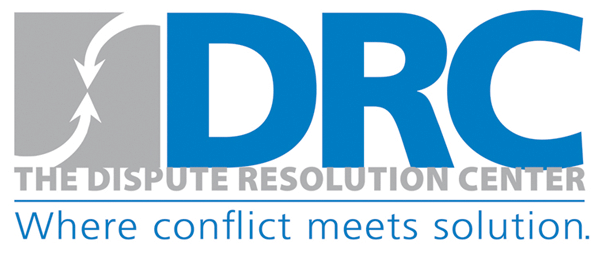Feature by Concentrate online magazine titled “OpEd: Why mediation is a model for problem solving.” July 30, 2014
Why Mediation is a Model for Problem Solving
About eleven years ago, I was experiencing a life transition and thought it would be a great time to connect with the local community dispute resolution program. The exploration brought me to The Dispute Resolution Center in Ann Arbor, where a community of mediators worked together to provide an alternative approach to problem solving instead of going to court. What I found was a rich and engaged community of mediators committed to helping people problem solve and committed to making the DRC a vibrant, viable, and reliable choice for dispute resolution.
The Dispute Resolution Center is a non-profit organization with 501(c)3 status. In 1993, the DRC became a community dispute resolution program as defined by the Michigan Supreme Court’s State Court Administrative Office of the Dispute Resolution. The DRC is funded in part by the Michigan Supreme Court-State Court Administrative Office, Michigan Department of Community Health, Washtenaw County, Ann Arbor Area Community Foundation, Washtenaw Coordinated Funders and private donors. Its services include mediation, conciliation, facilitation, restorative practices and training. The center relies on volunteers; it now has approximately 100 volunteer mediators and facilitators who have a minimum of 40 hours of mediator training and 10 hours of internship, as required by the Michigan Supreme Court.
As a community-focused organization, the DRC’s mission is to build peaceful communities by offering a variety of affordable conflict resolution services and trainings to members in the Washtenaw and Livingston County communities. Currently, the DRC mediates disputes including, but not limited to, neighbors, parent/child, separating and divorcing families, adult and minor guardianship, employer/employee, landlord/tenant, business/consumer, special education, small claims, civil, estate, child protection and school attendance matters. Restorative and peacemaking practices are used in student-to-student and family conflicts. All of the services are confidential.
This work is so important to our community. Dispute resolution is an underutilized service in our community and provides the opportunity to resolve contentious issues in a positive, healing fashion without burdening the legal system.
An example of our work: Two young students were chronically disruptive in class, either teasing each other or fighting. The school relied on suspension and other punishments like in-school detention to correct the behavior. Unfortunately, the efforts were in vain. The teacher learned that not only were the students having issues, but the mothers also had a conflict. Our restorative practices allowed the students, their parents, teacher, and school administrator to meet with a neutral facilitator. The meeting addressed what happened, why it happened, how each person felt, and the impact of the negative behavior on all involved. These are not typical concerns when suspension is being decided by school administrators. The end result was that the parents learned that their children were carrying on their (the parents’) long standing dispute. The group was able to make amends and the students were able to move forward in the learning environment in a productive way.
Another example of a successful resolution concerned two partners in a small business who decided it was necessary to close the business and go their separate ways. The strain of this decision affected the owners’ ability to communicate and relate to each other. What had started off as a fun business venture was ending as an acrimonious feud. The mediation challenged each owner to remember the strengths of the other, reframe and redefine their concerns of dissolution into nonthreatening issues, identify their individual needs and interests without judgment or fear, and brainstorm ideas for solutions. They were able to arrive at a mutually satisfactory agreement and left the business on good terms and without any lingering personal animosity.
And here is an illustration of how a mediator can resolve issues within a family with conflicting visions: A family of eight adult siblings was struggling over the care of their aging mother. Each sibling had an approach to providing the care but was not working cooperatively with each other or with the mother. The mediation process uncovered the trust issues among the siblings, the unresolved disputes from many years ago, and learned of the health and financial issues of some of the siblings. Addressing these other issues allowed them to move forward and develop a plan of care giving and support for their aging mother. The mediation process eliminated a court petition being filed.
These are common stories at the DRC. And while these incidents appear isolated, they in fact impact the larger community. Chronic suspensions results in failing grades and can often start a dismal academic trajectory. Mishandled business matters affect the economy of the community. Poor caregiving can result in ambulance calls. And any of these disputes have the potential to clog our already taxed judicial system.
These processes matter because they are private and confidential – there is no penalty for what is discussed. They allow disclosure as the neutrality of the mediators sets a stage for people to talk without judgment or evaluation. The process empowers all parties to be empathetic, allows the acknowledgment and recognition that a problem exists and empowers the individuals to take ownership of the task of crafting a solution, even though responsibilities differ. These processes are inclusive in that everyone impacted by the problem or solution is welcome at the table. The DRC’s interventions strengthen relationships, are forward-thinking and a model for future problem solving.
